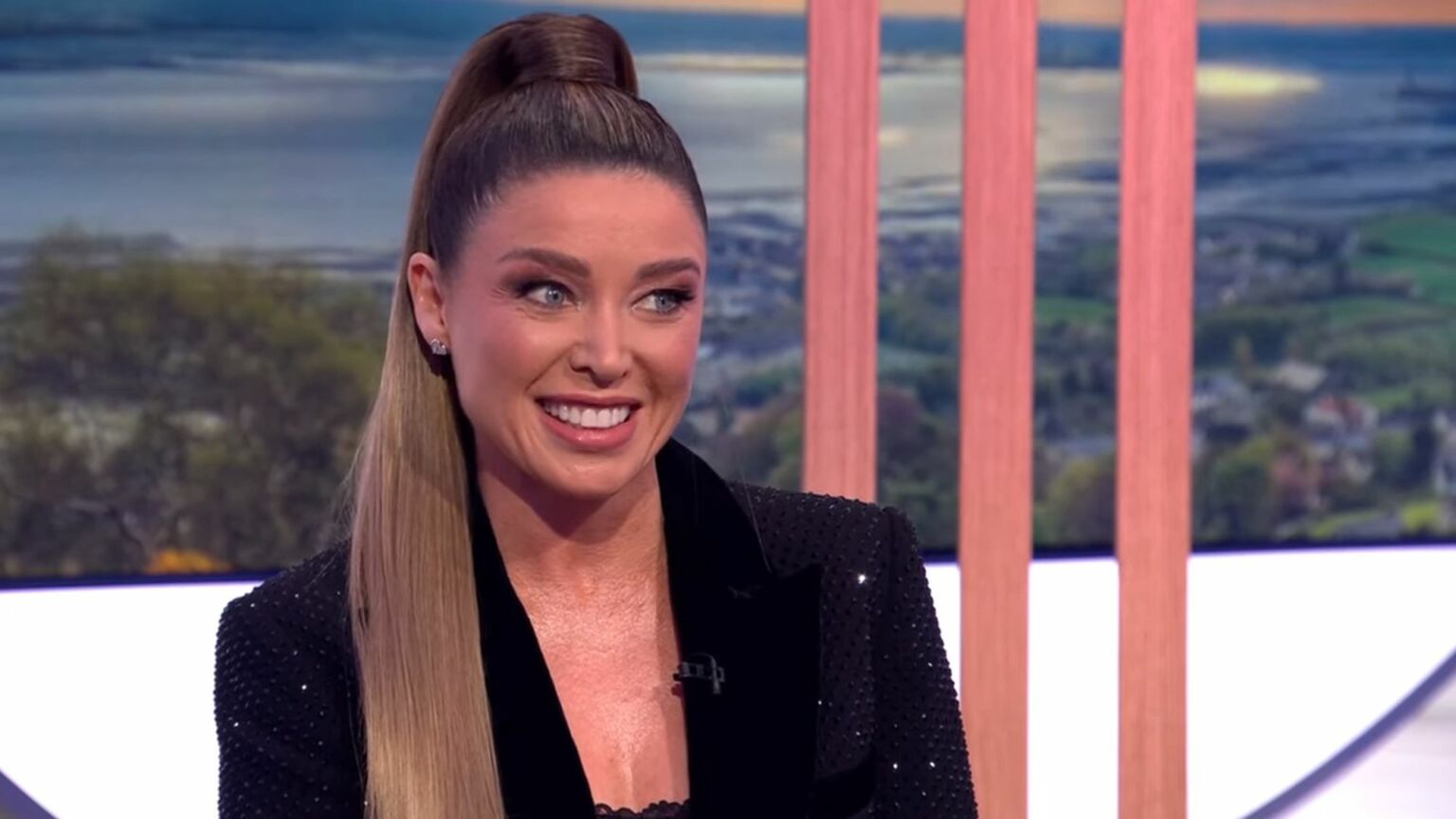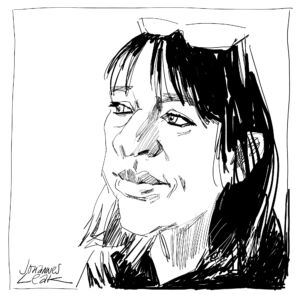Dannii Minogue and the heterosexual ‘queers’
Why do so many life-long straights want to identify into the ‘LGBTQ+’ community?

Want to read spiked ad-free? Become a spiked supporter.
There are many different types of creepy men, but the ones I have always found the weirdest are those who say: ‘I’m a lesbian trapped in a man’s body.’ We used to laugh at them, but these days, you would be expected to welcome them into your lesbian dating group, or risk being called a bigot and taken to court. Lad’s night out!
After a long and sorrowful history of invisibility (with famous lesbians, from Sappho to Garbo, countable on one sensibly manicured hand), gay women now find themselves the subject of the new reality-TV dating show, I Kissed a Girl. From The Well of Loneliness to BBC light entertainment – it’s progress, of a kind, if you like your progress with a side order of prurience.
Like its male precursor, I Kissed a Boy, the show has been accepted by the British public with their usual lack of outrage. In fact, the only controversy around it was caused by host Dannii Minogue’s comments last week. The question of what Kylie’s less-famous sister (oops, I sibling-shamed her!) ‘identifies’ as has produced a right comedy of errors. Apparently overcome with emotion, she announced on BBC’s The One Show that ‘I identify as queer, in a weird way’.
A few days later, Dannii must have felt she had over-egged the rainbow-sprinkled pudding a bit, as she issued an Instagram post stating: ‘To clarify… I was not making an announcement that I’m a lesbian or queer, I’m straight and in a long-term hetero relationship.’ As if that wasn’t clarity aplenty, she then told the Independent: ‘I will run to anything sparkly, rainbow, camp… gay people have always been the people who I’d be drawn to, who I’d want to hang out with. Everything in my world is queer and fabulous and I love it – even though I’m a straight girl.’ If a 52-year-old woman can now identify as a girl, then the sky’s the limit. Perhaps the sky itself, though apparently blue, may identify as terracotta, or even terra firma.
All this was just harmless, silly, good-natured chatter. But then she went and spoiled it all by saying something stupid like: ‘There are so many people in the community who are scared right now, and particularly trans men and women – if you make something [like I Kissed a Girl] with such good intentions, we can hopefully send a ripple effect going back.’ How many times must we sensible people repeat that dressing up as the opposite sex has nothing to do with being homosexual?
Perhaps I was wrong to expect sense from Minogue. As she is middle-aged and has never once been linked with a woman romantically, hers must be a very ‘weird way of being queer’ indeed. As in, non-existent. But – in a weird way – she summed up the problem with ‘queer’ perfectly. As with all the ‘trans’ nonsense, ‘queer’ doesn’t actually exist. It’s just noises masquerading as words, like a small child deciding to bark and demanding to be accepted as a dog.
As I’ve enjoyed watching the dating show, Love Island, in the past, I decided to give I Kissed a Girl a whirl. It follows 10 single lesbians who are matched up, based on what they say they’re looking for in a partner, and they meet for the first time with a kiss. Attractive strangers rock up and the fledgling relationships are put to the test.
It’s striking how much like Love Island it is – the ‘innovative’ BBC copying common old ITV again, even down to the camera angles. Whenever Minogue enters, it’s filmed in exactly the same way as Maya Jama’s grand entrances in Love Island. When Minogue leaves, all the contestants have to say, ‘Wow, she’s so beautiful!’, just as they do with the sublime MJ (even though it’s rather less accurate this time). She is introduced as ‘the iconic Dannii Minogue’ (obviously someone realised that ‘iconic singer’ or ‘iconic actress’ might be a bit of a stretch). The i-word, being a sure marker of thick-think, is used copiously throughout the show. At one point, the girls are in the middle of having a pool party when one of them says: ‘Look at us, a bunch of gays all together – it’s iconic!’ It’s really not, dear.
I’ve ‘been around’, to put it politely, and didn’t expect to be shocked by this show. But I was, halfway through episode two, when the girls have a group chat about the word ‘lesbian’ and why none of them likes it. I had read about this before, when the young American singer JoJo Siwa said in 2022: ‘I don’t like the word [lesbian]… it’s just, like, a lot. At the end of the day, that’s what I am… but it’s like the word moist. It’s just like… ugh!’
One I Kissed a Girl contestant says, ‘But do you know why the L comes first in LGBTQ?’. She then explains that it’s because lesbians helped gay men through the AIDS epidemic. The others are so impressed by this that one of them says, ‘I’ll be a lesbian forever from now on’, which comes across oddly. It’s as if these young, gay women need gay men to validate them. Don’t they have enough to be proud of on their own account?
To give the girls credit, they do seem sweet. There’s also something reassuring about a group of young lesbians of their age being comfortable playing with ‘femme’ and ‘masc’ (née ‘butch’) personas, without the more masculine ones automatically thinking they’re ‘trans’ and thus must have their breasts hacked off.
And so we come to the elephant trunk in the room. At some point, things being what they are, with lesbians being encouraged to #BeKind to men called Melissa, will a penis in a wig pop up expecting to be picked? And will it have a full-on temper tantrum, with much stamping of size-10 feet, if the lesbians prefer each other?
I can’t wait for Minogue to present the inevitable I Kissed A Transwoman season, where it will transpire that lesbians don’t like it, because of the scratchy six o’clock shadow, and all walk out. And the autogynephiles end up in a villa full of their own kind, rogue genitalia clashing angrily as they vainly try to replicate the mystery of the lesbian experience. Roll on next summer!
Julie Burchill’s new play, Making Marilyn, co-authored with Daniel Raven, will be at Brighton Palace Pier in May. Get tickets here.
Picture by: YouTube.
Who funds spiked? You do
We are funded by you. And in this era of cancel culture and advertiser boycotts, we rely on your donations more than ever. Seventy per cent of our revenue comes from our readers’ donations – the vast majority giving just £5 per month. If you make a regular donation – of £5 a month or £50 a year – you can become a and enjoy:
–Ad-free reading
–Exclusive events
–Access to our comments section
It’s the best way to keep spiked going – and growing. Thank you!










Comments
Want to join the conversation?
Only spiked supporters and patrons, who donate regularly to us, can comment on our articles.